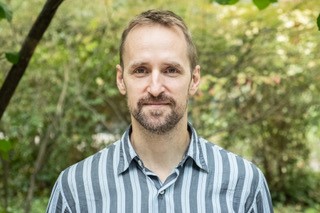Visual aesthetics and the brain’s “default-mode” network
Dr Edward Vessel, Senior Research Scientist, Max Planck Institute for Empirical Aesthetics, Frankfurt, Germany
Psychology Common Room, Social Sciences Complex, 12a Priory Road
Abstract
Visual aesthetic experiences, such as when a person finds a sunset to be beautiful or is “moved” by a painting, affect many aspects of life but are poorly understood. A central challenge for studying aesthetics is that different people can like very different things. By measuring “shared taste,” e.g. how much different people like the same images, we have found that natural categories such as faces and landscapes tend to be judged similarly by different people, while human-made objects such as artwork and architecture produce much more individual tastes.
To understand how the brain supports such diverse aesthetic experiences, we use a brain imaging technique called functional magnetic resonance imaging (fMRI). Even though different people like very different things, we can identify common brain systems activated by aesthetically appealing images. One of these systems, the so-called “default-mode network” (DMN), is particularly interesting as it is believed to support inner thought. We find that the DMN is engaged by aesthetically appealing artworks and contains a general code for what images we find appealing.
Biography
Dr. Vessel is a Senior Research Scientist at the Max Planck Institute for Empirical Aesthetics (MPIEA) in Frankfurt, Germany. His research group, the Visual Neuroaesthetics Lab, uses behavioral and brain imaging techniques to study the psychological and neural basis of aesthetic experiences, such as when a person is aesthetically “moved” by visual art, poetry, architecture, music, or natural landscapes.
Through his work and service, Dr. Vessel aims to elevate the international profile of neuroaesthetics research: he is a board member of the International Association of Empirical Aesthetics, and hosts events focused on neuroaesthetics both at MPIEA and international conferences. He received his PhD in Neuroscience at the University of Southern California and is former co-director of the New York University Artlab.
https://www.aesthetics.mpg.de/en/research/department-of-neuroscience/visna-lab.html
Contact information
For any queries, please contact bvi-enquiries@bristol.ac.uk.
